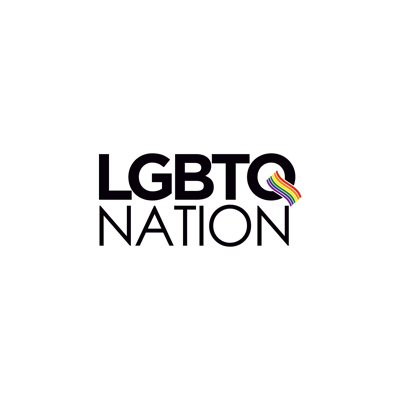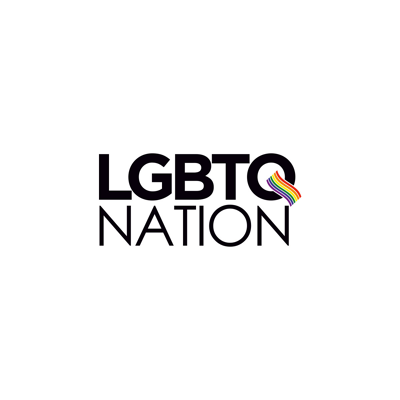LARAMIE, Wyoming – A gentle giant of a man greets his husband with a kiss and a hug as he arrives home. As his husband departs for his night job, he settles in with the couple’s infant daughter.
As the sun sets on the Wyoming prairie and draws shadows into the neighboring foothills just west of the town, Jim Osborn opens the back door to let the dog outside and reflects on the October week that not only marks the annual global “Coming Out” day, but also the anniversary of the murder of his friend Matthew Shepard.
In a wide ranging interview with LGBTQ Nation, Osborn reflects on the changes to his town, his university, and his state in the 15 years since his friend was attacked.
The story of how Matt was beaten, tied to a buck fence and left to die near Laramie on a clear October night in 1998 is well-known. His murder sparked protests, vigils and calls for legal protections for victims of anti-gay violence, and launched an aggressive awareness campaign.
Never Miss a Beat
Subscribe to our newsletter to stay ahead of the latest LGBTQ+ political news and insights.
Osborn, who now works for the University of Wyoming’s Office of Diversity and Employment Practices, said coping with the loss has not been easy. “Many people hear the words ‘Matthew Shepard’ and think of him as an event, an icon of the LGBT equality movement.”
For Osborn though, Matt is the friend who’s no longer present in his life.
“I miss seeing his incredible beaming smile, the one that came not just from his mouth, but from the sparkle in his eyes and from deep within his heart. I can’t find words to describe the pain of losing him to such violence.”
Matt Shepard was a freshman at the University of Wyoming when he and Osborn first met, and Osborn says he regrets not getting to know Shepard better.
“I only had the honor of knowing Matt for a few short months before he was killed. I was planning Gay Awareness Week during that time, and kept telling myself that I would make a point of getting to know him more in depth afterward,” he says.
“One of my greatest regrets is not taking that time from the start. I now try to view others as people first,” says Osborn. “I learned that from Matt, I think. He didn’t look at someone and see them as black, or Jewish, or disabled. He saw them as a person first and foremost; the rest was just insignificant differences, since we have much more in common than anything that separates or divides us.”
“He used to strike up conversations with strangers, homeless folks, or anyone he found interesting or compelling,” he reflects. “I think he liked learning about people, and valued their experiences in a way most of us don’t. He taught me something about the value of humanity and how we’re all connected. I suppose he taught me to give everyone the dignity and respect they deserve as a human being.”
While each annual anniversary is difficult, Osborn notes it always that day that reminds him how precious life is.
“Perhaps most importantly, Matt’s murder taught me how important it is to stand up for those who can’t. To speak out for those who have been silenced through fear or through violence.”
“Matt wanted to help others and make a difference in someone’s life. He can’t do that now, and so I and many others have to do it for him. I still keep telling people about him. About his murder. About hate and violence,” he says. “I do it because if I stay silent or inactive I’m no better than those who killed him.”
“I don’t want another parent to know the pain Dennis and Judy feel. I don’t want another community to be scarred by the manifestation of ignorance and fear. I do it for Matt. For his smile. For his heart. I do it to change the world the way he changed me.”
Osborn says that Matt wouldn’t recognize the University of Wyoming today. “There is the Rainbow Resource Center and two GLBTQ student groups and the entire month of October celebrates the GLBTQ community.”
Osborn says that the most important legacy that came in the aftermath of the Shepard attack — not only Laramie, but Wyoming — is “the awareness, and how much we talk about GLBT issues. That there really are gay people in Wyoming, that there really are gay families in Wyoming.”
He says that back at 1998, he had a set perception of how things were for the GLBT community in the state and “it wasn’t overly optimistic.”
One factor coming from “Matt’s attack was that there really was support (in Laramie) but that we just didn’t talk about GLBT issues. For example, before Matt’s attack we’d have maybe three requests from other campus groups a semester to talk about GLBT issues then suddenly that became 10 or more,” he said.
Once the conversations started, the support was there.
He pointed out that local businesses were putting up signs that read “Hate is not a Laramie value.”
The conversation on campus at UW has radically changed as well, Osborn says. “Now when I go to classes to talk about GLBT issues, when I ask if any one has a gay friend or relative, almost every student knows a GLBT person and a majority raises their hands. Before, maybe one or two might raise their hand.”
But, he says, he does find it disturbing that when he goes to classes to talk about GLBT issues, more often than not he’ll encounter students who ask, “Who is Matthew Shepard?” Much of that, he realizes, is that many students were barely toddlers at the time of Matt’s death, and don’t have a direct connection to what happened.
Osborn says that the largest positive impact of his friend’s death that has had lasting effects through to the current generation was because people identified with Matt as a person, not just as a news story.
“When the grandmothers and mothers saw Matt’s picture on the evening news, they saw the kid next door. They saw their grandson, their son, their niece their nephew — for the first time they saw a person, rather than an event.”
In the 15 years since the attack, Osborn says there’s been a significant attitude change in terms of inclusiveness and diversity — not only at UW, but in, the surrounding community as well.
While he credits part of that to “time marching on,” and a better sense of what it means to be GLBT by the students and community at large, he cautions that Laramie is still not yet a “bastion” of diversity.
From a policy perspective, he says that in 1998, and for a while moving forward, lawmakers in Cheyenne would put forward bills to severely restrict LGBT rights such as attempting to pass an amendment to the state’s constitution that would define marriage only as between one man and one woman, and go even further by legally refusing to acknowledge same-sex unions from other states.
This past legislative session (2013) there were both a civil union partnership bill and a marriage equality bill.
The marriage bill died in committee but the civil union made it to a vote and although it did not pass which, Osborn says, was a change because “lawmakers were willing to talk about the issue and representatives from both sides were willing to do something for my family.”
Osborn notes that Wyoming politics are very much conducted at a grass roots level, which makes interaction with lawmakers and policy makers on LGBT issues much more personal and also makes it a more direct connection when voters are dissatisfied with public policy.
“We doesn’t hesitate to pick up the phone and call. If we don’t reach the lawmaker we’ll reach their executive secretary and they will hear how we feel on the issues.”
Important issues such as bullying are a concern, but Osborn says that progress has been even in the more rural areas of the state as more schools establish Gay Straight Alliances clubs and as awareness continues to happen as more people talk about LGBT issues.
Osborn says it’s important to educate today’s youth to embrace diversity and inclusion.
Hate is not an inborn trait, he says. It’s taught. Children have to be taught to hate a person or a group, says Osborn.
And so, looking forward, Osborn says his goal each time he visits a class, or travels to another town to talk about LGBT issues, is to connect with just one more student.
It’s what his friend Matt believed about himself … that if he only touches one person, then his life will have been worthwhile.
Still, Osborn says, what keeps him in Laramie is that its a good place. “It’s a good place to raise a family.”















